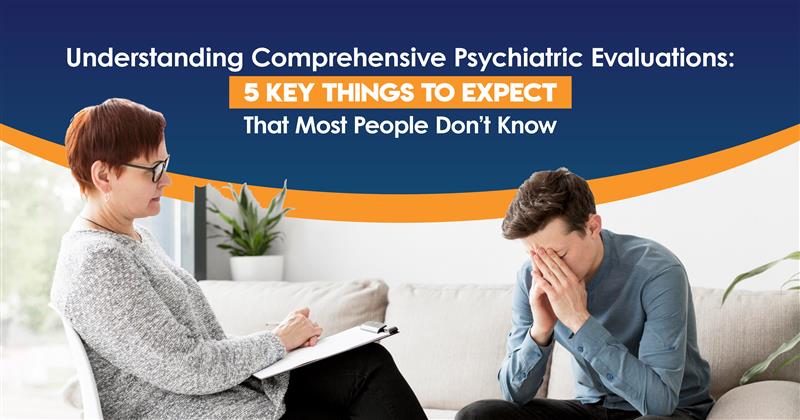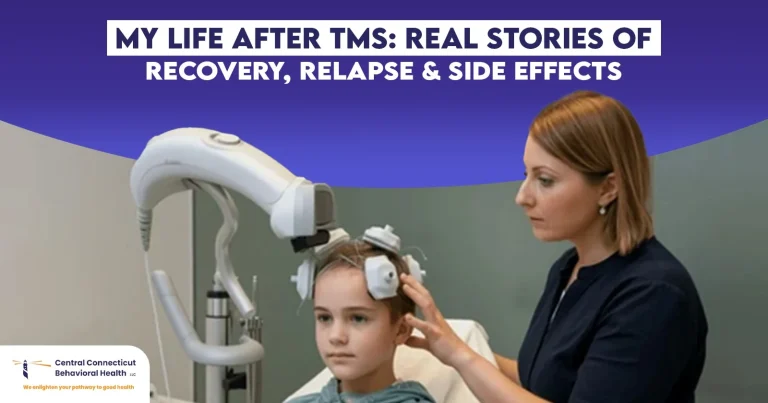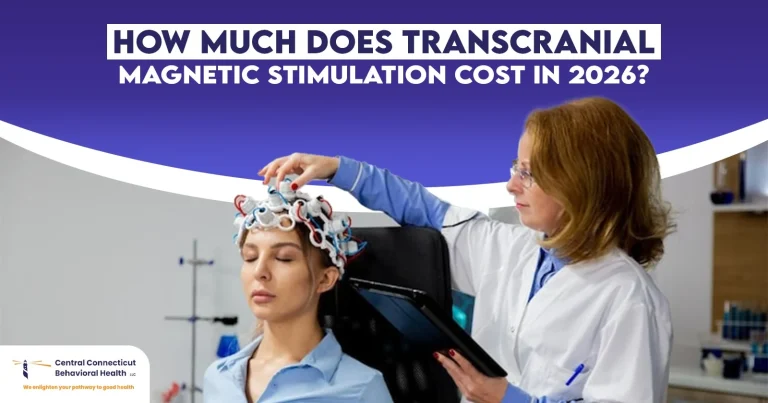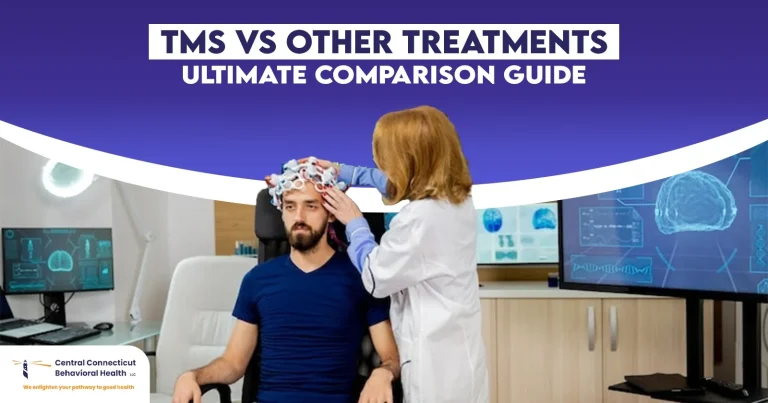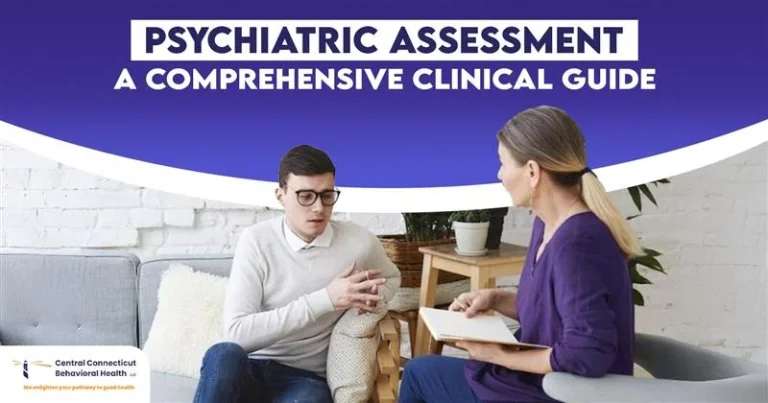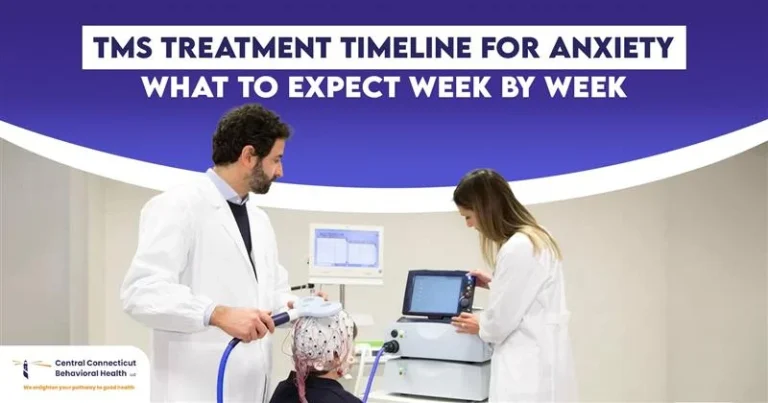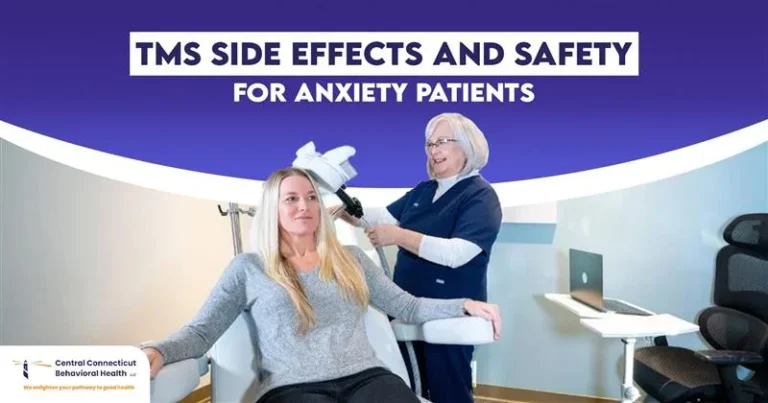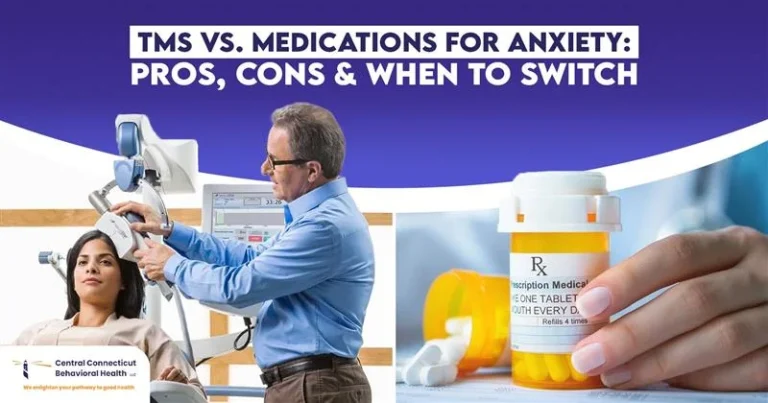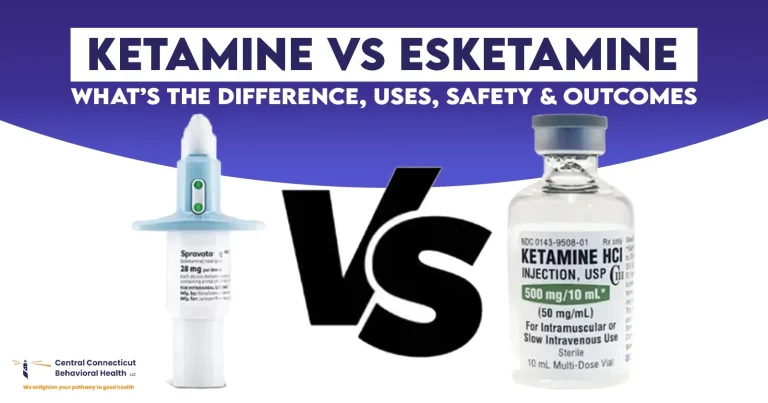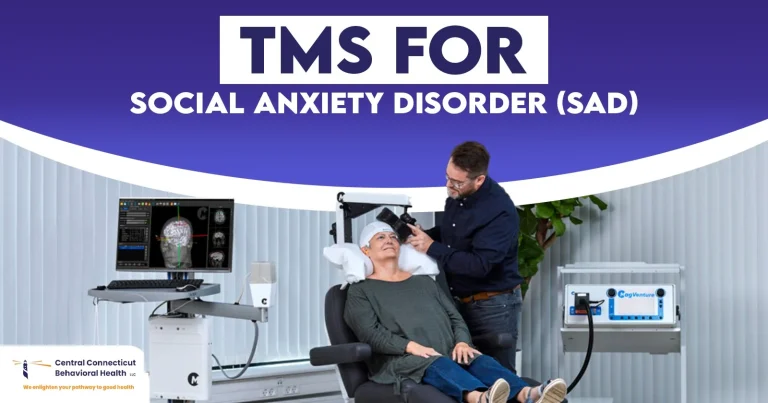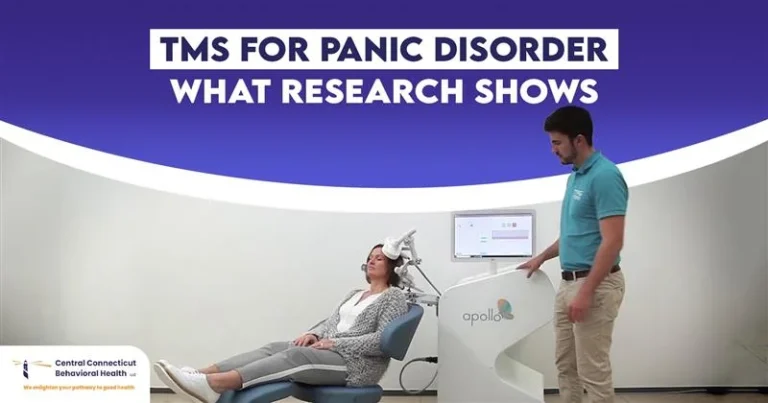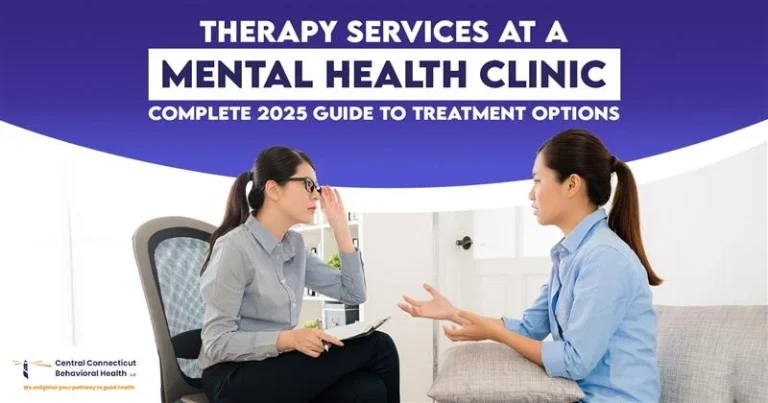A lot of people having mental health problems don’t get care because they’re not sure what to anticipate. They are afraid of being misunderstood. That’s why understanding comprehensive psychiatric evaluations is such an important first step.
A psychiatric evaluation involves more than simply responding to a series of questions. It gives you a complete view of your mental, emotional, and behavioral wellness. This technique helps psychiatrists figure out what kinds of mental health problems people have. It also helps psychiatrists to make treatment strategies that are right for them.
If you or someone you care about is thinking about getting psychiatric care in Connecticut, you might be curious about what happens during a full comprehensive psychiatric evaluation. At Central Connecticut Behavioral Health, we want to make this process as easy, helpful, and empowering as we can.
This guide will explain how a full psychiatric evaluation works and how it fits into psychiatric care in Connecticut, if you want to know where to find one near you.
Understanding comprehensive psychiatric evaluations and why is it important?
To begin understanding comprehensive psychiatric evaluations, you must first know what they include. A licensed mental health practitioner does an organized, detailed assessment. This technique helps find hidden problems, make symptoms clearer, and provide treatment alternatives that will help with long-term mental health.
This evaluation is especially helpful if you are experiencing mood change or unusual behaviors. It also helps tell the difference between similar conditions, such psychiatric evaluation vs psychological evaluation.
Many clinics, like Central Connecticut Behavioral Health, use these tests as a way to get people into therapy, medication, or both.
Why Is a Psychiatric Evaluation So Important?
At Central Connecticut Behavioral Health, evaluations help identify what kind of care a person needs. The purpose is not just to name a condition but to understand you as a whole person.
With the right evaluation, patients get connected to services such as:
- Mental health services
- Medication management
- Behavioral therapy
5 Key Elements of a Comprehensive Psychiatric Evaluation
-
Thorough Medical and Psychiatric History
One of the first components of understanding comprehensive psychiatric evaluations is knowing that your provider will gather a full medical and psychological history.
This includes:
- Family history of mental illness
- Current and past medications
- Hospitalizations or surgeries
- Past experiences with therapy or medication
This history helps your psychiatrist understand root causes and patterns behind your symptoms.
-
Mental Status Examination (MSE)
Mental Status Examination helps your provider understand your current mental condition.
The MSE assesses:
- Appearance and behavior
- Mood and affect
- Speech and language
- Thought content and clarity
- Insight and judgment
This is especially useful when distinguishing psychiatric evaluation vs psychological evaluation.
Why the MSE Matters
- It helps find disorders like bipolar disorder.
- It gives a start for diagnosis.
- Make sure your psychiatrist knows how you’re feeling right now.
- Helps clarify the direction for treatment.
-
Screening Tools and Psychological Tests
Extra psychological exams serve to make the diagnosis even more accurate. These tools are especially helpful in comprehensive psychiatric evaluation. It helps you in detecting anxiety, depression, or other conditions.
Some commonly used screening tools include:
- PHQ-9 (for depression)
- GAD-7 (for anxiety)
- MMPI-2 (for personality)
Understanding how these tools fit into understanding comprehensive psychiatric evaluations helps reduce fear and stigma.
-
A Deep Dive into Your Life and Symptoms
Unlike general checkups, these evaluations dig into every area of your life. A provider might ask about:
- Work or school challenges
- Personal relationships and support systems
- Trauma or substance use
- Lifestyle habits
Clinics offering psychiatric care in Connecticut, like Central Connecticut Behavioral Health (CCBH), want to know more about your life than just your symptoms.
-
Personalized Diagnosis and Treatment Plan
Once your evaluation is complete, the next step is diagnosis and a recommended care plan. This may include:
- Therapy
- Medication
- Support groups or referrals
- Crisis planning or family involvement
People seeking mental health services, this is where the healing journey begins.
Psychiatric vs Psychological Evaluation
| Feature | Psychiatric Evaluation | Psychological Evaluation |
| Provider Type | Psychiatrist | Psychologist |
| Prescribes Medication | Yes | No |
| Focus | Diagnosis + medication management | In-depth psychological testing |
| Tools | MSE, screening forms | Psychometric assessments |
| Duration | 1–2 hours | 2–4 hours |
A Holistic Approach to Mental Health: It’s Not Just About Diagnosis
When you understand complete psychiatric examinations, you know that every area of your life affects your mental health. That’s why good places like Central Connecticut Behavioral Health look at the full individual.
Evaluations look at:
Cultural and social conditions
Things that are happening are stressful
Help systems at home, school, or job
This method makes sure that you get care that fits your individual situation. It’s not about fitting into a box; it’s about making a route that works for you.
When Should You Consider a Psychiatric Evaluation?
If you:
- Experience mood swings
- Have difficulty focusing or remembering things
- Feel unusually anxious or paranoid
- Struggle with sleep or appetite changes
- Have thoughts of self-harm
- Face overwhelming life transitions
- Trouble concentrating
- Emotional outbursts
- Past trauma or abuse
- Declining performance at work or school
Tips for Preparing for Your Evaluation
- Bring a list of current medications
- Write down symptoms or triggers beforehand
- Think about your family history
- Be open, honest, and patient with the process
Understanding how can I get a psychiatric evaluation also means knowing what you need to do before you walk in.
Understanding Comprehensive Psychiatric Evaluations: Common Myths
Let’s break down some myths:
- Myth: You only need an evaluation if you’re in crisis.
Fact: Early evaluation can prevent crises. - Myth: It’s all about pills.
Fact: Treatment plans include multiple options - Myth: It’s a process that only needs to be done once.
Fact: Ongoing support is often essential.
A high-quality behavioral health services rocky hill ct provider like Central Connecticut Behavioral Health focuses on both diagnosis and long-term care.
Follow-Up Care: What It Is and Why It Matters
People often think that the evaluation is the end of the path. In fact, it’s merely the first step. The follow-up is when actual change happens after you finish your full psychiatric evaluation.
Follow-up could include:
- Changing your meds
- Continued therapy to go into deeper emotional issues
- Support that lasts through group or family therapy
If you need behavioral health treatments in Connecticut, make sure to find a provider that will help you after the diagnosis.
Benefits of Choosing Central Connecticut Behavioral Health
Choosing a reputable provider matters. Here’s why Central Connecticut Behavioral Health is trusted in the community:
- Culturally responsive care
- Patient-focused therapy
- Collaboration with primary care providers
- Full range of mental health treatments
If you’re searching for CT behavioral health or Connecticut behavioral health, this center is a reliable choice for adults, teens, and children alike.
Final Words
Understanding comprehensive psychiatric evaluations means removing fear and embracing clarity. These evaluations aren’t about judgment. They’re about care, understanding, and a path forward.
It’s not a sign of weakness to choose to get help through a full psychiatric evaluation in a world where there are still so many wrong ideas about mental health. Psychiatrist don’t want to place you in a box or give you a label. Instead, they want to hear your narrative, figure out what’s causing your problems. They come up with a care plan according to your needs.
People typically don’t recognize or talk about their mental health problems. People start noticing when it affects their relationships or quality of life in general. But getting an early diagnosis through a mental evaluation can change your life. A lot of individuals wait until something bad happens to ask for help. But now you know that evaluations are just as important for those who are starting to feel overwhelmed or who have unresolved trauma or traumas.
Trusted mental health clinic like Central Connecticut Behavioral Health provide personalized care built around your needs. From your first evaluation to long-term support, psychiatric care in Connecticut is here to help you thrive.
FAQs: Understanding Comprehensive Psychiatric Evaluations
How comprehensive psychiatric evaluation helps?
It helps identify mental health conditions. Psychiatrists create a personalized treatment plan. That’s the heart of understanding comprehensive psychiatric evaluations.
Can I access psychiatric care in Connecticut without a referral?
Yes, many clinics allow self-referral.
Is it the same as a psychological evaluation?
Understanding comprehensive psychiatric evaluations means realizing psychiatrists focus on medical treatment, while psychologists focus on assessments.
What if I live in Rocky Hill or Waterbury?
Clinics offering behavioral health services Rocky Hill CT, and nearby areas are well-equipped to help.
Can a family member join me during the evaluation?
Yes, if you’re comfortable
Will everything I say be confidential?
Yes.
Can I stop if I feel uncomfortable?
Yes.
Will I have to take medication?
Medication is just one option among several treatments.


